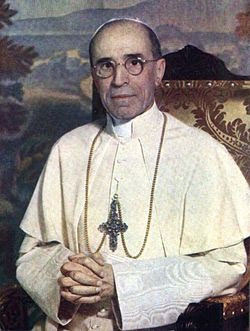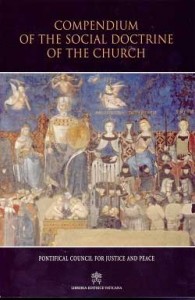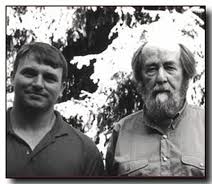Episode 19- Regnum Novum: Bringing forth the New Evangelization through Catholic Social Teaching with Omar Gutierrez – We begin the study of the “Compendium of the Social Doctrine of the Church” Â Chapter 1
– We begin the study of the “Compendium of the Social Doctrine of the Church” Â Chapter 1
[powerpress]
CHAPTER ONE
GOD’S PLAN OF LOVE FOR HUMANITY
I. GOD’S LIBERATING ACTION IN THE HISTORY OF ISRAEL
a. God’s gratuitous presence
b. The principle of creation and God’s gratuitous action
II. JESUS CHRIST, THE FULFILMENT OF THE FATHER’S PLAN OF LOVE
a. In Jesus Christ the decisive event of the history of God with mankind is fulfilled
b. The revelation of Trinitarian love
We live at a very special time. The confluence of many things has brought forth the clear need to be able to articulate the Social Teaching of the Catholic Church in a way that is accessible and applicable. This is not to be an effort where high-minded theories are to be bandied about. Rather, this is a time of opportunity wherein we can apply the Social Doctrine to the concrete so as to bring about a New Kingdom, a Revolution. – Omar G.
Also visit Omar’s “Discerning Hearts” page Catholic Social Teaching 101
Tags: catholic social doctrine, catholic social teaching, creation, scripture
This entry was posted on Tuesday, September 4th, 2012 at 8:37 am
You can follow any responses to this entry through the RSS 2.0 feed.
Episode 18- Regnum Novum: Bringing forth the New Evangelization through Catholic Social Teaching with Omar Gutierrez - Bl. John Paul II - Laborem Exercens (1981), Sollicitudo Rei Socialis (1987), and the Centesimus Annus (1991)
- Bl. John Paul II - Laborem Exercens (1981), Sollicitudo Rei Socialis (1987), and the Centesimus Annus (1991)
[powerpress]
We live at a very special time. The confluence of many things has brought forth the clear need to be able to articulate the Social Teaching of the Catholic Church in a way that is accessible and applicable. This is not to be an effort where high-minded theories are to be bandied about. Rather, this is a time of opportunity wherein we can apply the Social Doctrine to the concrete so as to bring about a New Kingdom, a Revolution. – Omar G.
John Paul II , sometimes called John Paul the Great, born Karol Józef Wojtyła   18 May 1920, Wadowice, Republic of Poland – 2 April 2005, Vatican City), reigned as Pope of theCatholic Church from 1978 until his death in 2005. He was the second-longest serving Pope in history and the first non-Italian since 1523.
18 May 1920, Wadowice, Republic of Poland – 2 April 2005, Vatican City), reigned as Pope of theCatholic Church from 1978 until his death in 2005. He was the second-longest serving Pope in history and the first non-Italian since 1523.
In this episode we discuss  Laborem Exercens (1981), Sollicitudo Rei Socialis (1987), and the Centesimus Annus (1991), among other works
Also visit Omar’s “Discerning Hearts” page Catholic Social Teaching 101
Tags: catholic social doctrine, catholic social justice, catholic social teaching, Centesimus Annus, Laborem Exercens, Sollicitudo Rei Socialis
This entry was posted on Tuesday, August 28th, 2012 at 8:29 am
You can follow any responses to this entry through the RSS 2.0 feed.
Episode 16- Regnum Novum: Bringing forth the New Evangelization through Catholic Social Teaching with Omar Gutierrez -Â Bl. John XXIII , Pacem in Terras (Peace on Earth) and the Natural Law
-Â Bl. John XXIII , Pacem in Terras (Peace on Earth) and the Natural Law
[powerpress]
We live at a very special time. The confluence of many things has brought forth the clear need to be able to articulate the Social Teaching of the Catholic Church in a way that is accessible and applicable. This is not to be an effort where high-minded theories are to be bandied about. Rather, this is a time of opportunity wherein we can apply the Social Doctrine to the concrete so as to bring about a New Kingdom, a Revolution. – Omar G.
Pacem in Terris  (Peace on Earth) was a papal encyclical issued by Pope John XXIII on 11 April 1963.
 (Peace on Earth) was a papal encyclical issued by Pope John XXIII on 11 April 1963.
Also visit Omar’s “Discerning Hearts” page Catholic Social Teaching 101
Tags: catholic social doctrine, catholic social justice, catholic social teaching, New Kingdom, pope john xxiii, social doctrine, Social Teaching
This entry was posted on Tuesday, August 14th, 2012 at 12:19 pm
You can follow any responses to this entry through the RSS 2.0 feed.
Episode 14- Regnum Novum: Bringing forth the New Evangelization through Catholic Social Teaching with Omar Gutierrez – Pope Pius XI and “QUADRAGESIMO ANNO” , Pope Pius XII and the Radio Addresses.
– Pope Pius XI and “QUADRAGESIMO ANNO” , Pope Pius XII and the Radio Addresses.
[powerpress]
We live at a very special time. The confluence of many things has brought forth the clear need to be able to articulate the Social Teaching of the Catholic Church in a way that is accessible and applicable. This is not to be an effort where high-minded theories are to be bandied about. Rather, this is a time of opportunity wherein we can apply the Social Doctrine to the concrete so as to bring about a New Kingdom, a Revolution. – Omar G.
Pope Pius XI (31 May 1857 – 10 February 1939), born Ambrogio Damiano Achille Ratti, was Pope from 6 February 1922, and sovereign of Vatican City from its creation as an independent state on 11 February 1929 until his death on 10 February 1939.  He issued numerous encyclicals including Quadragesimo Anno, highlighting capitalistic greed of international finance, and social justice issues, andQuas Primas, establishing the feast of Christ the King. He took as his papal motto, “Christ’s peace in Christ’s kingdom”.
 Venerable Pope Pius XII  born Eugenio Marìa Giuseppe Giovanni Pacelli (2 March 1876 – 9 October 1958), reigned as Pope, head of the Catholic Church and sovereign of Vatican City State, from 2 March 1939 until his death in 1958.
Venerable Pope Pius XII  born Eugenio Marìa Giuseppe Giovanni Pacelli (2 March 1876 – 9 October 1958), reigned as Pope, head of the Catholic Church and sovereign of Vatican City State, from 2 March 1939 until his death in 1958.
Also visit Omar’s “Discerning Hearts” page Catholic Social Teaching 101
Tags: catholic church, catholic social doctrine, catholic social teaching, papacy, Quadragesimo Anno, social doctrine
This entry was posted on Tuesday, July 31st, 2012 at 10:51 am
You can follow any responses to this entry through the RSS 2.0 feed.
Episode 13- Regnum Novum: Bringing forth the New Evangelization through Catholic Social Teaching with Omar Gutierrez – Pope Leo XIII and “Rerum Novarum”
– Pope Leo XIII and “Rerum Novarum”
[powerpress]
We live at a very special time. The confluence of many things has brought forth the clear need to be able to articulate the Social Teaching of the Catholic Church in a way that is accessible and applicable. This is not to be an effort where high-minded theories are to be bandied about. Rather, this is a time of opportunity wherein we can apply the Social Doctrine to the concrete so as to bring about a New Kingdom, a Revolution. – Omar G.
Pope Leo XIII (2 March 1810 – 20 July 1903), born Vincenzo Gioacchino Raffaele Luigi Pecci , was the 256th Popeof the Roman Catholic Church, reigning from 1878 to 1903. He was the oldest pope (reigning until the age of 93), and had the third longest pontificate, behind his immediate predecessor Pius IX and John Paul II.
He is known for intellectualism, the development of social teachings with his encyclical Rerum Novarum and his attempts to define the position of the Church with regard to modern thinking. He influenced Roman Catholic Mariology and promoted both the rosary and the scapular. He issued a record eleven encyclicals on the rosary, approved two new Marian scapulars and was the first Pope to fully embrace the concept of Mary as mediatrix.  He is also the author of the St. Michael the Archangel prayer, among others.
Also visit Omar’s “Discerning Hearts” page Catholic Social Teaching 101
Tags: catholic social doctrine, catholic social justice, catholic social teaching, pope leo, pope leo XIII
This entry was posted on Tuesday, July 24th, 2012 at 10:58 am
You can follow any responses to this entry through the RSS 2.0 feed.
Episode 3 – Regnum Novum:  Value # 3.  Look, Judge, Act - Authentically Living Out Catholic Social Teaching
[powerpress]

Blessed Pope John XXIII gave us this practical suggestion in his letter Mater et magistra. The Social Doctrine provides us with principles for reflection, criteria for judgment, and directives for action. Social justice is supposed to be lived out in our every day. That’s the point, and so this Holy Father gave us the paradigm.
Look at the world around you, that which is most immediate to you. Start with your family. Proceed to your culture. Witness the social and economic realities/policies near you. Know the political landscape of your city, county, state, and nation. See your neighbors close at hand and around the world. Use the principles of the Social Teaching as you look so that you know what to look for.
Judge what is best for the family, for the culture, for the society and the economy, for the state, for the world. Use the criteria provided by the Social Doctrine. What is missing? Â Why is it missing? Â What can be done?
Act on it. You’re a lay person with as real an obligation to evangelization as any priest. Do something in the world so as to make it’s semblance more like that which the Lord desires. Volunteer. Participate. Pray. Do not let some tell you that prayer is not action. Pray. You can pray and raise good children. Act.
Discerning Hearts is blessed to present Omar F. A. Guiterrez, M.A. , Special Assistant  to Archbishop George Lucas of the Archdiocese of Omaha, in a groundbreaking series which breaks open the heart of Catholic Social Doctrine.
We encourage you to visit “Regnum Novum – A New Kingdom: A Revolution†Omar Guiterrez’s blog site
 We live at a very special time. The confluence of many things has brought forth the clear need to be able to articulate the Social Teaching of the Catholic Church in a way that is accessible and applicable. This is not to be an effort where high-minded theories are to be bandied about. Rather, this is a time of opportunity wherein we can apply the Social Doctrine to the concrete so as to bring about a New Kingdom, a Revolution. – Omar G. from Regnum Novum
We live at a very special time. The confluence of many things has brought forth the clear need to be able to articulate the Social Teaching of the Catholic Church in a way that is accessible and applicable. This is not to be an effort where high-minded theories are to be bandied about. Rather, this is a time of opportunity wherein we can apply the Social Doctrine to the concrete so as to bring about a New Kingdom, a Revolution. – Omar G. from Regnum Novum
Also visit Omar’s “Discerning Hearts†page Catholic Social Teaching 101
Tags: Blessed Pope John XXIII, catholic, catholic podcast, catholic prayer, catholic social doctrine, catholic social teaching, Catholic Social Teaching Episode, cathollc spirituality
This entry was posted on Tuesday, January 24th, 2012 at 12:36 am
You can follow any responses to this entry through the RSS 2.0 feed.
“Dispose the day…” OK, I really didn’t understand the significance of St. Crispin and St. Crispinian except for their presence in the robust guy “band of brothers” speech from Shakespeare’s Henry V…very macho “rouse the troops” moment in the play… I just figured they were warriors too…(besides I’m more of a  “Midsummer Night’s Dream” kind of Shakespeare girl anyway…)
                         Â
 That is until I read Omar F. A. Gutierrez’s fantastic blog post bringing it all together! Treat your brain and heart by visiting his blog  Regnum Novum
That is until I read Omar F. A. Gutierrez’s fantastic blog post bringing it all together! Treat your brain and heart by visiting his blog  Regnum Novum
Here, once again, is Omar Guiterrez breaking open for Discerning Hearts the beauty of Catholic Social Doctrine….
(it’s amazing where you can find it if you have eyes to see and ears to hear)
Today marks the feast of Saints Crispin and Crispian, brothers who were martyred by beheading in Rome sometime during the reign of the Emperor Diocletian (emperor from 284-305 AD).
That the saints lived is certainly true. The story of these brothers, however, comes to us from a late account that has little to suggest it’s authenticity. Generally, though, we know them to be from Rome, to have worked in Soissons, Gaul (now France), and to have been shoemakers thus earning them the title of patrons for shoemakers, cobblers, and those who work with leather.
The tale is that these two brothers, perhaps twins of noble blood, caught up in the zealous care for their faith and in love for Christ, left Rome in the 3rd century in order to spread the Gospel in Gaul. They took up the trade of the shoemaker and would not charge the poor who requested their services. By their example, and not, it seems,by any grand preaching, these two were good witnesses to the faith and converted many. When Maximian was appointed co-emperor in 285 and came to Gaul, the brothers were accused and brought before a character named Rictiovarus, whom we don’t exactly know existed but whose seathing hatred for Christians is legendary. At any rate, they were tortured mercilessly, but when the attempt to kill the saintly brothers through drowning and burning failed, Rictiovarus was driven into such a desperate fury that he threw himself into the fire prepared for the brothers thus killing himself. Eventually, Crispin and Crispian were beheaded which is a very effective way of killing someone…unless you’re St. Winifred, in which case that might not always work.  There are several things I’d like to draw out about these saints.
The first is that it was on this day 595 years ago (1415) that King Henry V led his horribly outnumbered English army into battle against the French at Agincourt, the battle so wonderfully remember today for the speech written by Shakespeare in Henry V,( a version of which can be seen above with Kenneth Branagh.)
The second thing is this, brought out in an edition of Butler’s Lives of the Saints, namely that Sts. Crispin and Crispian are a wonderful reminder that sanctity is not only for the cloistered hermit who has removed himself from society. These two never embarked on some large speaking tour throughout Gaul. They did not write any large tomes explicating the faith for the masses. They are not known for levitating or bilocation or magically producing shoes no one today can replicate with all our modern technology. No, they were simply saintly shoemakers. They were holy artisans is all, and this is a good thing. In this way they are almost the perfect patron saints for laborers, heroes of the Social Doctrine of the Church.
I’m reminded of a line from the Part I Chapter 3 of St. Francis de Sales’ classic Introduction to the Devout Life where he says:
 It is an error, nay more, a very heresy, to seek to banish the devout life from the soldier’s guardroom, the mechanic’s workshop, the prince’s court, or the domestic hearth. Of course a purely contemplative devotion, such as is specially proper to the religious and monastic life, cannot be practised in these outer vocations, but there are various other kinds of devotion well-suited to lead those whose calling is secular, along the paths of perfection. The Old Testament furnishes us examples in Abraham, Isaac and Jacob, David, Job, Tobias, Sarah, Rebecca and Judith; and in the New Testament we read of St. Joseph, Lydia and Crispus, who led a perfectly devout life in their trades:–we have S. Anne, Martha, S. Monica, Aquila and Priscilla, as examples of household devotion, Cornelius, S. Sebastian, and S. Maurice among soldiers;–Constantine, S. Helena, S. Louis, the Blessed Amadaeus, 2 and S. Edward on the throne. And we even find instances of some who fell away in solitude,– usually so helpful to perfection,–some who had led a higher life in the world, which seems so antagonistic to it. S. Gregory dwells on how Lot, who had kept himself pure in the city, fell in his mountain solitude. Be sure that wheresoever our lot is cast we may and must aim at the perfect life.
Sanctity can be found through the work which God has given us no matter what that might be. Indeed it is to be found in the guardroom, in the shop, in the court, in the home. This is the message of the Social Teaching of the Catholic Church. Sanctity and evangelization can be found through the labor of everyday life. It is less what you do than the way you do it, and the way to do anything is with the love of Christ.
Third, I want to point out that with saints whose stories are in doubt it can be tempting to write them off as the incipient pap of bygone days. There are some who actually claim that the Church has managed its control over the laity throughout the centuries by inventing such stories. I’m not making that claim, but many are tempted to think that there never was such a saint, or that we cannot glean any lesson from them, or that, poor bumpkins that they were, those ignoramuses of the early years of the Church meant well if they weren’t always truthful. This sort of temptation is what Chesterton called “chronological snobbery.†Somehow we image that in our Enlightened age we appreciate truth much more than the people of the early centuries. This would be a terrible mistake.
Stories do evolve over time, and tales can be embellished but we should never forget three things: first, that the stories were told because of some real event or real person, even if we don’t remember their name and even if our collective memories have gotten the details wrong. Second, the miraculous is not impossible. We believe in things seen and unseen, so why presume the fantastical must be unreal? Third, someone in heaven answers to the name of these saints in question. That’s what matters.  – Regnum Novum
Thanks Omar! My visits to DSW will never be the same again.
Tags: catholic, catholic podcast, catholic prayer, catholic social doctrine, cathollc spirituality, christians, emperor diocletian, guiterrez, henry v, st crispin
This entry was posted on Tuesday, October 25th, 2011 at 10:16 am
You can follow any responses to this entry through the RSS 2.0 feed.
Episode 11- Regnum Novum: Bringing forth the New Evangelization through Catholic Social Teaching with Omar Guiterrez – Value 5 The Common Good, Universal Destination of Goods, Subsidiarity, Participation, Solidarity part 5
Social Teaching with Omar Guiterrez – Value 5 The Common Good, Universal Destination of Goods, Subsidiarity, Participation, Solidarity part 5
[powerpress]
These are the five principles laid out in the Compendium of the Social Doctrine of the Church. If we understand these principles, then the work of the Revolution can begin. We are made now for a New Kingdom with Christ as our King in all things. Let us discover this place together, and make the devil cringe and know the suffering of defeat. “Love”
Discerning Hearts is blessed to present Omar F. A. Guiterrez, M.A. , Special Assistant to Archbishop George Lucas of the Archdiocese of Omaha, in a groundbreaking series which breaks open the heart of Catholic Social Doctrine.
We encourage you to visit “Regnum Novum – A New Kingdom: A Revolution” Omar Guiterrez’s blog site
 We live at a very special time. The confluence of many things has brought forth the clear need to be able to articulate the Social Teaching of the Catholic Church in a way that is accessible and applicable. This is not to be an effort where high-minded theories are to be bandied about. Rather, this is a time of opportunity wherein we can apply the Social Doctrine to the concrete so as to bring about a New Kingdom, a Revolution. – Omar G. from Regnum Novum
We live at a very special time. The confluence of many things has brought forth the clear need to be able to articulate the Social Teaching of the Catholic Church in a way that is accessible and applicable. This is not to be an effort where high-minded theories are to be bandied about. Rather, this is a time of opportunity wherein we can apply the Social Doctrine to the concrete so as to bring about a New Kingdom, a Revolution. – Omar G. from Regnum Novum
From episode 11… Point 5: The Common Good, Universal Destination of Goods, Subsidiarity, Participation, Solidarity
These are the five principles laid out in the Compendium of the Social Doctrine of the Church. If we understand these principles, then the work of the Revolution can begin. We are made now for a New Kingdom with Christ as our King in all things. Let us discover this place together, and make the devil cringe and know the suffering of defeat.
In this episode we focus on “Solidarity”.
Also visit Omar’s “Discerning Hearts” page Catholic Social Teaching 101
Tags: catholic, catholic podcast, catholic prayer, catholic social doctrine, catholic social teaching, cathollc spirituality, Omar Guiterrez, solidarity
This entry was posted on Monday, October 10th, 2011 at 8:41 am
You can follow any responses to this entry through the RSS 2.0 feed.
Episode 10- Regnum Novum: Bringing forth the New Evangelization through Catholic Social Teaching with Omar Guiterrez– Value 5 The Common Good, Universal Destination of Goods, Subsidiarity, Participation, Solidarity part 4
Social Teaching with Omar Guiterrez– Value 5 The Common Good, Universal Destination of Goods, Subsidiarity, Participation, Solidarity part 4
In this episode we focus on “Participation”.
[powerpress]
These are the five principles laid out in the Compendium of the Social Doctrine of the Church. If we understand these principles, then the work of the Revolution can begin. We are made now for a New Kingdom with Christ as our King in all things. Let us discover this place together, and make the devil cringe and know the suffering of defeat. “Love”
Discerning Hearts is blessed to present Omar F. A. Guiterrez, M.A. , Special Assistant to Archbishop George Lucas of the Archdiocese of Omaha, in a groundbreaking series which breaks open the heart of Catholic Social Doctrine.
We encourage you to visit “Regnum Novum – A New Kingdom: A Revolution” Omar Guiterrez’s blog site
 We live at a very special time. The confluence of many things has brought forth the clear need to be able to articulate the Social Teaching of the Catholic Church in a way that is accessible and applicable. This is not to be an effort where high-minded theories are to be bandied about. Rather, this is a time of opportunity wherein we can apply the Social Doctrine to the concrete so as to bring about a New Kingdom, a Revolution. – Omar G. from Regnum Novum
We live at a very special time. The confluence of many things has brought forth the clear need to be able to articulate the Social Teaching of the Catholic Church in a way that is accessible and applicable. This is not to be an effort where high-minded theories are to be bandied about. Rather, this is a time of opportunity wherein we can apply the Social Doctrine to the concrete so as to bring about a New Kingdom, a Revolution. – Omar G. from Regnum Novum
From episode 10… Point 5: The Common Good, Universal Destination of Goods, Subsidiarity, Participation, Solidarity
These are the five principles laid out in the Compendium of the Social Doctrine of the Church. If we understand these principles, then the work of the Revolution can begin. We are made now for a New Kingdom with Christ as our King in all things. Let us discover this place together, and make the devil cringe and know the suffering of defeat.
In this episode we focus on “Participation”.
Also visit Omar’s “Discerning Hearts” page Catholic Social Teaching 101
Tags: archdiocese of omaha, catholic, catholic podcast, catholic prayer, catholic social doctrine, cathollc spirituality, compendium of the social doctrine of the church, new evangelization, social teaching of the catholic church
This entry was posted on Monday, October 3rd, 2011 at 10:49 am
You can follow any responses to this entry through the RSS 2.0 feed.
The revised and updated version of what I think is a classic work, “Solzhentisyn: A Soul in Exile”, is a tremendous gift to us all.  With all of the impressive clarity and tender insight you have come to expect from Joseph Pearce, this biography of the great Russian writer covers the lifespan of this incredible figure of the 20th century.   Joseph goes to the “heart” of the man, his Christian faith. With that illumination, he sheds a whole new understanding of his contribution to literary thought, Catholic Social Doctrine, and the value and dignity of each human person.  He allows Alexander Solzhenitsyn to speak for himself, and what he has to say is so important it shouldn’t be missed.
in Exile”, is a tremendous gift to us all.  With all of the impressive clarity and tender insight you have come to expect from Joseph Pearce, this biography of the great Russian writer covers the lifespan of this incredible figure of the 20th century.   Joseph goes to the “heart” of the man, his Christian faith. With that illumination, he sheds a whole new understanding of his contribution to literary thought, Catholic Social Doctrine, and the value and dignity of each human person.  He allows Alexander Solzhenitsyn to speak for himself, and what he has to say is so important it shouldn’t be missed.
[powerpress]
Tags: Alexander Solzhenitsyn, ave maria university, catholic, catholic podcast, catholic prayer, catholic social doctrine, cathollc spirituality, human person, ignatius press, joseph pearce, sa, work
This entry was posted on Monday, June 20th, 2011 at 7:02 am
You can follow any responses to this entry through the RSS 2.0 feed.
Episode 9- Regnum Novum: Bringing forth the New Evangelization through Catholic Social Teaching with Omar Guiterrez – Value 5 The Common Good, Universal Destination of Goods, Subsidiarity, Participation, Solidarity part 3
– Value 5 The Common Good, Universal Destination of Goods, Subsidiarity, Participation, Solidarity part 3
[powerpress]
These are the five principles laid out in the Compendium of the Social Doctrine of the Church. If we understand these principles, then the work of the Revolution can begin. We are made now for a New Kingdom with Christ as our King in all things. Let us discover this place together, and make the devil cringe and know the suffering of defeat. “Love”
Discerning Hearts is blessed to present Omar F. A. Guiterrez, M.A. , Special Assistant to Archbishop George Lucas of the Archdiocese of Omaha, in a groundbreaking series which breaks open the heart of Catholic Social Doctrine.
We encourage you to visit “Regnum Novum – A New Kingdom: A Revolution” Omar Guiterrez’s blog site
 We live at a very special time. The confluence of many things has brought forth the clear need to be able to articulate the Social Teaching of the Catholic Church in a way that is accessible and applicable. This is not to be an effort where high-minded theories are to be bandied about. Rather, this is a time of opportunity wherein we can apply the Social Doctrine to the concrete so as to bring about a New Kingdom, a Revolution. – Omar G. from Regnum Novum
We live at a very special time. The confluence of many things has brought forth the clear need to be able to articulate the Social Teaching of the Catholic Church in a way that is accessible and applicable. This is not to be an effort where high-minded theories are to be bandied about. Rather, this is a time of opportunity wherein we can apply the Social Doctrine to the concrete so as to bring about a New Kingdom, a Revolution. – Omar G. from Regnum Novum
From episode 9… Point 5: The Common Good, Universal Destination of Goods, Subsidiarity, Participation, Solidarity
These are the five principles laid out in the Compendium of the Social Doctrine of the Church. If we understand these principles, then the work of the Revolution can begin. We are made now for a New Kingdom with Christ as our King in all things. Let us discover this place together, and make the devil cringe and know the suffering of defeat.
In this episode we focus on “Subsidiarity”.
Also visit Omar’s “Discerning Hearts” page Catholic Social Teaching 101
Tags: archdiocese of omaha, catholic, catholic podcast, catholic prayer, catholic social doctrine, cathollc spirituality, compendium of the social doctrine of the church, new evangelization, social teaching of the catholic church, Subsidiarity
This entry was posted on Monday, May 9th, 2011 at 12:07 am
You can follow any responses to this entry through the RSS 2.0 feed.
Episode 8- Regnum Novum: Bringing forth the New Evangelization through Catholic Social Teaching with Omar Guiterrez – Value 5 The Common Good, Universal Destination of Goods, Subsidiarity, Participation, Solidarity part 2
– Value 5 The Common Good, Universal Destination of Goods, Subsidiarity, Participation, Solidarity part 2
[powerpress]
These are the five principles laid out in the Compendium of the Social Doctrine of the Church. If we understand these principles, then the work of the Revolution can begin. We are made now for a New Kingdom with Christ as our King in all things. Let us discover this place together, and make the devil cringe and know the suffering of defeat. “Love”
Discerning Hearts is blessed to present Omar F. A. Guiterrez, M.A. , Special Assistant to Archbishop George Lucas of the Archdiocese of Omaha, in a groundbreaking series which breaks open the heart of Catholic Social Doctrine.
We encourage you to visit “Regnum Novum – A New Kingdom: A Revolution” Omar Guiterrez’s blog site
 We live at a very special time. The confluence of many things has brought forth the clear need to be able to articulate the Social Teaching of the Catholic Church in a way that is accessible and applicable. This is not to be an effort where high-minded theories are to be bandied about. Rather, this is a time of opportunity wherein we can apply the Social Doctrine to the concrete so as to bring about a New Kingdom, a Revolution. – Omar G. from Regnum Novum
We live at a very special time. The confluence of many things has brought forth the clear need to be able to articulate the Social Teaching of the Catholic Church in a way that is accessible and applicable. This is not to be an effort where high-minded theories are to be bandied about. Rather, this is a time of opportunity wherein we can apply the Social Doctrine to the concrete so as to bring about a New Kingdom, a Revolution. – Omar G. from Regnum Novum
From episode 8… Point 5: The Common Good, Universal Destination of Goods, Subsidiarity, Participation, Solidarity
These are the five principles laid out in the Compendium of the Social Doctrine of the Church. If we understand these principles, then the work of the Revolution can begin. We are made now for a New Kingdom with Christ as our King in all things. Let us discover this place together, and make the devil cringe and know the suffering of defeat.
In this episode we focus on “The Universal Destination of Goods”.
Also visit Omar’s “Discerning Hearts” page Catholic Social Teaching 101
Tags: catholic, catholic podcast, catholic prayer, catholic social doctrine, catholic social teaching, cathollc spirituality, compendium of the social doctrine of the church, new evangelization, Omar Guiterrez, social teaching of the catholic church
This entry was posted on Monday, May 2nd, 2011 at 4:46 am
You can follow any responses to this entry through the RSS 2.0 feed.
Episode 7 – Regnum Novum: Bringing forth the New Evangelization through Catholic Social Teaching with Omar Guiterrez – Value 5 The Common Good, Universal Destination of Goods, Subsidiarity, Participation, Solidarity part 1
– Value 5 The Common Good, Universal Destination of Goods, Subsidiarity, Participation, Solidarity part 1
[powerpress]
These are the five principles laid out in the Compendium of the Social Doctrine of the Church. If we understand these principles, then the work of the Revolution can begin. We are made now for a New Kingdom with Christ as our King in all things. Let us discover this place together, and make the devil cringe and know the suffering of defeat. “Love”
Discerning Hearts is blessed to present Omar F. A. Guiterrez, M.A. , Special Assistant to Archbishop George Lucas of the Archdiocese of Omaha, in a groundbreaking series which breaks open the heart of Catholic Social Doctrine.
We encourage you to visit “Regnum Novum – A New Kingdom: A Revolution” Omar Guiterrez’s blog site
 We live at a very special time. The confluence of many things has brought forth the clear need to be able to articulate the Social Teaching of the Catholic Church in a way that is accessible and applicable. This is not to be an effort where high-minded theories are to be bandied about. Rather, this is a time of opportunity wherein we can apply the Social Doctrine to the concrete so as to bring about a New Kingdom, a Revolution. – Omar G. from Regnum Novum
We live at a very special time. The confluence of many things has brought forth the clear need to be able to articulate the Social Teaching of the Catholic Church in a way that is accessible and applicable. This is not to be an effort where high-minded theories are to be bandied about. Rather, this is a time of opportunity wherein we can apply the Social Doctrine to the concrete so as to bring about a New Kingdom, a Revolution. – Omar G. from Regnum Novum
From episode 7… Point 5: The Common Good, Universal Destination of Goods, Subsidiarity, Participation, Solidarity
These are the five principles laid out in the Compendium of the Social Doctrine of the Church. If we understand these principles, then the work of the Revolution can begin. We are made now for a New Kingdom with Christ as our King in all things. Let us discover this place together, and make the devil cringe and know the suffering of defeat.
In this episode we focus on “The Common Good”.
Also visit Omar’s “Discerning Hearts” page Catholic Social Teaching 101
Tags: archdiocese of omaha, catholic, catholic podcast, catholic prayer, catholic social doctrine, cathollc spirituality, common good, compendium of the social doctrine of the church, new evangelization, social teaching of the catholic church
This entry was posted on Monday, April 25th, 2011 at 10:23 am
You can follow any responses to this entry through the RSS 2.0 feed.
Episode 6 – Regnum Novum: Bringing forth the New Evangelization through Catholic Social Teaching with Omar Guiterrez – Value 4 Truth, Freedom, Justice, and Love part 3 “Love”
– Value 4 Truth, Freedom, Justice, and Love part 3 “Love”
Discerning Hearts is blessed to present Omar F. A. Guiterrez, M.A. , Special Assistant to Archbishop George Lucas of the Archdiocese of Omaha, in a groundbreaking series which breaks open the heart of Catholic Social Doctrine.
We encourage you to visit “Regnum Novum – A New Kingdom: A Revolution” Omar Guiterrez’s blog site
 We live at a very special time. The confluence of many things has brought forth the clear need to be able to articulate the Social Teaching of the Catholic Church in a way that is accessible and applicable. This is not to be an effort where high-minded theories are to be bandied about. Rather, this is a time of opportunity wherein we can apply the Social Doctrine to the concrete so as to bring about a New Kingdom, a Revolution. – Omar G. from Regnum Novum
We live at a very special time. The confluence of many things has brought forth the clear need to be able to articulate the Social Teaching of the Catholic Church in a way that is accessible and applicable. This is not to be an effort where high-minded theories are to be bandied about. Rather, this is a time of opportunity wherein we can apply the Social Doctrine to the concrete so as to bring about a New Kingdom, a Revolution. – Omar G. from Regnum Novum
[powerpress]
From episode … 6. Truth, Freedom, Justice, and Love part 3 “Love“
These are the four values of the Social Teaching of the Catholic Church as they’re enumerated in the Compendium and as they were laid out by, again, Blessed Pope John XXIII in Mater et magistra and Pacem in terris. Without these values, the work of social justice becomes an albatross around our necks. It pulls us down, threatening to poison all the work we do, no matter how well intentioned.
We are seeking to build a civilization of love. Love is an encounter with God. Love begets love, and the experience of love can heal many more wounds than can socio-economic trivialities.
(Truth, Freedom and Justice are covered in other episodes)
Also visit Omar’s “Discerning Hearts” page Catholic Social Teaching 101
Tags: archdiocese of omaha, catholic, catholic podcast, catholic prayer, catholic social doctrine, cathollc spirituality, love, new evangelization, social justice, social teaching of the catholic church
This entry was posted on Monday, February 28th, 2011 at 3:04 pm
You can follow any responses to this entry through the RSS 2.0 feed.
Episode 5 – Regnum Novum: Bringing forth the New Evangelization through Catholic Social Teaching with Omar Guiterrez – Value 4 Truth, Freedom, Justice, and Love part 2 “Justice”
– Value 4 Truth, Freedom, Justice, and Love part 2 “Justice”
Discerning Hearts is blessed to present Omar F. A. Guiterrez, M.A. , Special Assistant to Archbishop George Lucas of the Archdiocese of Omaha, in a groundbreaking series which breaks open the heart of Catholic Social Doctrine.
We encourage you to visit “Regnum Novum – A New Kingdom: A Revolution” Omar Guiterrez’s blog site
 We live at a very special time. The confluence of many things has brought forth the clear need to be able to articulate the Social Teaching of the Catholic Church in a way that is accessible and applicable. This is not to be an effort where high-minded theories are to be bandied about. Rather, this is a time of opportunity wherein we can apply the Social Doctrine to the concrete so as to bring about a New Kingdom, a Revolution. – Omar G. from Regnum Novum
We live at a very special time. The confluence of many things has brought forth the clear need to be able to articulate the Social Teaching of the Catholic Church in a way that is accessible and applicable. This is not to be an effort where high-minded theories are to be bandied about. Rather, this is a time of opportunity wherein we can apply the Social Doctrine to the concrete so as to bring about a New Kingdom, a Revolution. – Omar G. from Regnum Novum
[powerpress]
From episode … 5. Truth, Freedom, Justice, and Love part 2 “Justice”
These are the four values of the Social Teaching of the Catholic Church as they’re enumerated in the Compendium and as they were laid out by, again, Blessed Pope John XXIII in Mater et magistra and Pacem in terris. Without these values, the work of social justice becomes an albatross around our necks. It pulls us down, threatening to poison all the work we do, no matter how well intentioned.
Justice requires we know what is due to our neighbor. But even when justice is achieved, it can be cold and impersonal, as Pope John Paul II said. This is why the phrase “social justice†appears so rarely in the Church’s Social Teaching. Justice is the bare minimum, and we are not looking for the minimum.
(Truth, Freedom and Love are covered in other episodes)
Also visit Omar’s “Discerning Hearts” page Catholic Social Teaching 101
Tags: catholic, catholic podcast, catholic prayer, catholic social doctrine, cathollc spirituality, new evangelization, pope john paul ii, social justice, social teaching of the catholic church
This entry was posted on Monday, February 21st, 2011 at 11:04 am
You can follow any responses to this entry through the RSS 2.0 feed.



